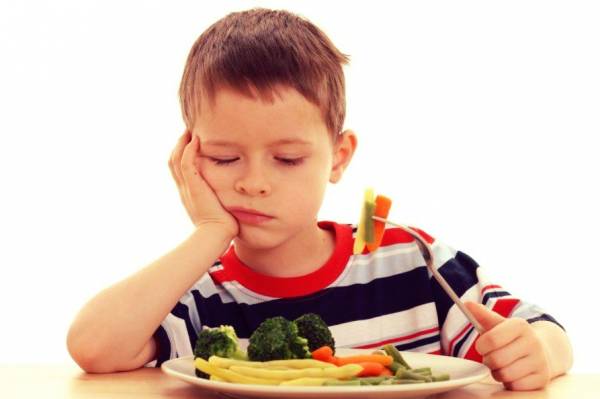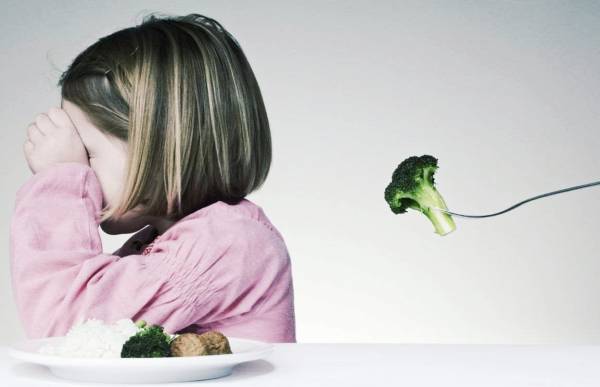Malnutrition in children, its causes, symptoms, and treatment
Is your little angel getting thinner and weaker day by day? Does he often suffer from infections and other health problems, and are you worried that his problem is malnutrition? If you are anxious, it is time to talk to your doctor, but before doing so, read this text to learn about malnutrition and its effects on your children.

What is malnutrition in children?
Your baby suffers from malnutrition when his body does not get enough nutrients, calories, and minerals.
Also, receiving essential nutrients boosts the body’s immunity and protects it from harmful infections. When a child is consuming too many calories, some form of malnutrition may also occur.
Malnutrition leads to several health disorders in the child’s body. Nutrient deficiencies affect physical health, behavior, mood, growth process, and other bodily functions.
Types of malnutrition in children:
Protein-energy malnutrition (PEM):
Due to the lack of protein and glucose in foods, the child experiences this particular malnutrition type.
Deficiency of micronutrients (vitamins and minerals):
Lack of trace elements can lead to a lack of nutrients in your baby. Micronutrients are nothing more than vitamins and minerals. Your baby needs these nutrients for proper body function and growth.
Some common reasons for starting a malnutrition problem are:
Poor diet in children:
When your baby does not get enough nutrients through food, he or she will become malnourished. The improper diet causes the child to suffer from a lack of nutrients. As a result, he may experience a nasty illness and have problems in life. Having dysphagia (difficulty swallowing) can also lead to malnutrition. In such cases, your baby will have difficulty digesting food and will not get the nutrients he or she needs.

Children’s mental health problems:
The mentally disabled child is more likely to be malnourished. In such an acute mental condition, he can not follow a proper eating habit.
Gastrointestinal disorders:
The baby’s body cannot absorb the nutrients in food due to digestive disorders. The body is deprived of vital nutrients, and your baby becomes malnourished.
Diabetes in children:
Your diabetic baby’s body cannot absorb vital nutrients due to high blood sugar levels. Her pancreas is damaged due to high blood sugar levels. This impairs the body’s ability to digest food and absorb nutrients for growth processes. As a result, your diabetic child suffers from malnutrition.
non-breastfeeding mothers:
Breastfeeding helps your baby stay healthy and disease-free. Sometimes mothers stop breastfeeding their baby for reasons that a doctor may recommend. However, not having enough breastfeeding can make your baby unhealthy.
Reasons for child malnutrition in underdeveloped countries:
In some underdeveloped countries, malnutrition can become an epidemic. Children from disadvantaged families do not eat enough to live a healthy life.
Some of the causes of malnutrition in developing countries are:
- Food shortages:
In developing countries, malnutrition occurs due to a lack of food supply. These countries cannot provide enough food resources for their people. They lack agricultural resources, technology, fertilizers, and other vital items. As a result, deprived families and children suffer from malnutrition.
- High food prices:
Most malnourished children come from low-income families. Even in developing countries, some families do not eat enough because it is expensive. They do not have the financial means to live an expensive life, and their children are deprived of food.

Some common symptoms of malnutrition include:
- Respiratory problems
- Sudden weight loss
- Allergies
- Severe fatigue
- Mental depression
- Deficiency of fat (adipose tissue)
- Abnormal body temperature
- Weak immune system
- Decreased muscle mass
- Fatigue
- High sensitivity to the feeling of cold
- High healing time for cuts, wounds, and infections
- Time of long-term recovery from diseases
- Inactivity
Safety system:
Malnutrition weakens your baby’s immune system and exposes them to infectious diseases. If your child follows unhygienic methods, he is more exposed to infectious diseases.
Deficiencies of zinc, iron, and vitamins stimulate malnutrition and weaken the immune system in children. Malnutrition affects the function of the child’s immune system and can weaken many diseases.
Problems in the development of the child:
Nutrient deficiencies and gastrointestinal infections commonly occur in children. Improper nutrition can lead to malnutrition in your children. With a gastrointestinal infection, your baby’s body cannot absorb the nutrients in food.
Specific nutrient deficiencies:
Deficiencies in some nutrients can complicate your baby’s health. For example, iron, zinc, and magnesium deficiencies exacerbate malnutrition. Low fat absorption deprives your baby of adequate amounts of fat-soluble vitamins such as vitamin D and vitamin A. Poverty and deficiency in physical and bone growth delay and causes long-term health problems for the child.

Failure in the child’s organs:
Severe malnutrition causes insufficiency of children’s organs. Some organs are severely affected by malnutrition, liver, heart, and kidneys.
The onset of harmful diseases in children:
Prolonged malnutrition can cause several health problems in a child. Some common illnesses include diarrhea, urinary tract infections, and pneumonia.
Malnutrition can also have other side effects such as:
Behavioral growth slows
Mental retardation
Slimming baby
Learning disabilities
Low growth of the child
Decreased problem-solving ability
Decreased community skills
Decreased IQ level
Attention Deficit Disorder
The body grows slowly.
Lack of memory in the child
Gastrointestinal disorders
Poor wound healing in the child’s body
Severe weight loss

Diagnosis of malnutrition in children:
The doctor will check your baby’s weight and height and compare it to the chart.
The doctor measures the diameter of the baby’s arm. If it is below 110 mm, it indicates malnutrition.
A routine blood test will detect malnutrition in your baby. Some specific blood tests, including blood cell counts, glucose, blood protein or albumin protein, and other infections and HIV, are also detected.
Other medical tests
Doctors recommend some additional medical tests to diagnose malnutrition in a child. Some of these tests are thyroid function tests, calcium, zinc, and vitamins.
- Treat malnutrition at home:
In the early stages of malnutrition, your child can recover with special home remedies:
The malnutrition specialist will review your child’s diet chart and make appropriate changes. The primary purpose of this work is to improve the food consumption of the growing child.
As your toddler reaches a critical age, his or her body needs enough calcium, calories, and protein. You should include nutrient-rich foods in your child’s list. To overcome malnutrition, the child can also take vitamins and mineral supplements. But it is better to consult your doctor first.
If the child has difficulty swallowing food, you should pay special attention to his food. Give him soft food. He can devour these foods and get all the vital nutrients. Take your baby to a pediatrician once a month during development.
What can be done to treat malnutrition in children?
- Treatment of child malnutrition in the hospital:

Feeding on the tube
This particular method helps patients with severe malnutrition get vital nutrients. If your child suffers from severe malnutrition, your doctor will recommend this treatment.
If your child experiences chronic malnutrition, your doctor may recommend regular clinical treatment as a preventative measure. Also, you should take nutrients, vitamins, and mineral supplements regularly.
Prevention of malnutrition in children:
Consider your pediatric professional guide.
If your little angel is continually losing weight, consult a doctor immediately. Your doctor will examine your baby every minute and check for any changes or health problems.
Encourage your child to eat foods rich in essential nutrients.
A growing child should have a balanced diet that includes foods that contain essential nutrients, minerals, and calories.
Avoid unhealthy diets for your baby.
Do not give your child fatty or spicy foods. Such foods reduce the health of your growing child and also cause obesity and lethargy.
Eat at regular intervals:
One of the best eating habits is to feed your baby well. Allow your child to eat small amounts every 3 to 4 hours.
Have regular physical exercise:
Apart from eating healthy and nutritious food, your child should exercise regularly. Exercise keeps his metabolic activity regular and removes toxins from the body. If your child is not interested in sports, you can give him a daily and fun activity. You can buy a bike or take him to swimming classes.
By receiving essential nutrients, children can overcome stressful nutritional conditions and live healthy lives.

Essential nutrients to prevent malnutrition in your baby include:
- Carbohydrates:
Carbohydrates provide the necessary energy for the baby. Your baby’s brain uses carbohydrates for energy. A child needs to get 50 to 100 grams of carbohydrates a day.
- Protein:
Protein regulates the blood’s pH and acid-base balance and combines and stimulates many hormones and enzymes’ secretion. Most importantly, protein plays a vital role in cell formation and improves your baby’s immune system.
- Fats:
Although consuming too much fat can be detrimental to your baby’s health, it is essential to get a small number of healthy fats. Fats help keep your baby’s skin and hair healthy. Maintains body temperature and promotes healthy cell function. Also, fat-soluble vitamins, such as vitamins A, D, E, and K, are high in fat.
- Vitamins and minerals:
Nutrients help maintain the essential functions of the baby’s body. It promotes overall health and protects your baby from harmful diseases and illnesses. Doctors recommend eating fresh fruits and vegetables regularly. They can provide the necessary amount of vitamins.
Some healthy foods your baby should eat to improve malnutrition:
Fresh fruits and vegetables
Carbohydrates of white rice, pasta, wheat, barley, potatoes, roots and tubers, sugar. Egg protein, nuts, barley flour, barley flour, legumes, peanut butter, and lean meats. Milk and dairy products, including cheese and yogurt.
Nutrients needed by children:
Here we list the nutritional needs of children. Include these foods in your children’s diet:
- Fruits and vegetables:
Eat two servings of fresh fruits and vegetables a day as a snack.
- Whole-grain foods:
You can serve wheat bread, white bread, brown rice, or wheat cake four meals a day.
- Milk and dairy products:
Three servings a day or a glass of milk. Yogurt, cheese, and milk pudding can be helpful.
- Protein:
Give your child various proteins such as eggs, fish, lean meats, cooked beans, and lentils.
- Vitamins and minerals:
As recommended by a medical consultant, the child can take vitamin supplements.
When should I see a doctor?
If you are concerned that your child is malnourished, you should see a nutritionist immediately.
also read:
Familiarity with 38 properties and benefits of fenugreek for body health
Properties and Benefits of Mustard Oil for Health
What do you know about the benefits and healing properties of popcorn?


